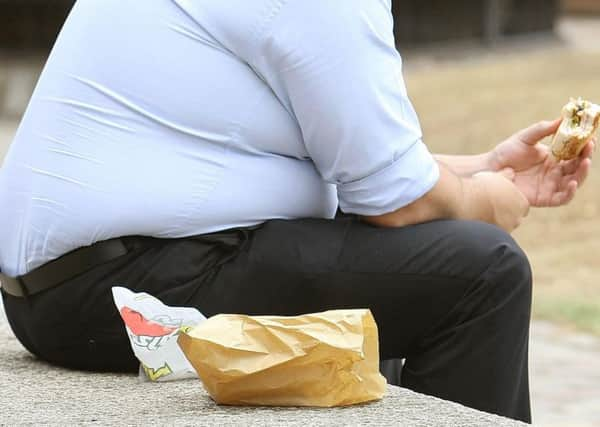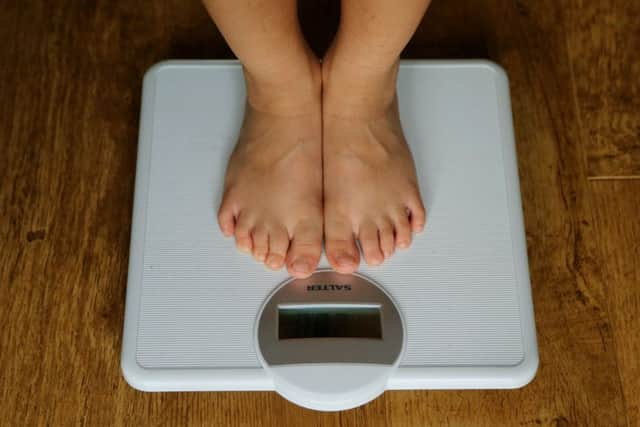There is no fat chance of ending North-South health divide – Jayne Dowle


It’s yet another example of the North-South divide. Professor Tim Doran, from the Department of Health Sciences at the University of York, says that there are major structural disparities in power and resources between the two halves of the country.
Advertisement
Hide AdAdvertisement
Hide AdAs a result, people living in the North live shorter and less healthy lives. This health gap has persisted for centuries, he argues, but in recent years it has started to widen. Even amongst young and middle-aged adults, who should expect to be in good health, there are 1,800 excess deaths in the North every year, largely attributable to alcohol and drug misuse.


This is worrying. Prof Doran talks of “increasing psychological distress and risk-taking in the North” which can only be addressed by looking at the substantial social and economic changes which affect us, and a rebalancing of the economy.
Advertisement
Hide AdAdvertisement
Hide AdWhat can we do but help ourselves? At our local supermarket at 8.30am last week, I watched a middle-aged couple come out, their trolley laden with frozen food and cans of lager. Then I saw a younger man, stomach bulging over his trousers, climb into his van with six (I counted them) packets of buns and biscuits piled on top of each other.


Is this helping ourselves? There might be more to those shock headline figures than meets the eye.
In two-thirds (that’s almost 70 per cent) of areas in the North, female life expectancy is lower than the area with the lowest female life expectancy in the South. For men, the same is true of 46 per cent of Northern areas.
Advertisement
Hide AdAdvertisement
Hide AdIn addition, 88 per cent of Northern local authority areas have a lower female life expectancy than the England average and 86 per cent have a lower male life expectancy. This is not something any of us should be remotely proud of.
Before you think I’ve turned traitor, yes, I know, people in the South also stuff their supermarket trollies full with frozen food and lager, and stagger to their vehicles bearing piles of buns and biscuits.
The point I’m making is that we don’t do ourselves any favours, and certainly don’t help towards making the North a healthy, strong place which can justify its position and sustain a thriving economy.
I’m trying to say that if we want to live longer, healthier lives, we have to start taking some personal responsibility for our own wellbeing.
Advertisement
Hide AdAdvertisement
Hide AdThis is especially pertinent when it comes to health spending. The North is also falling behind – funding for research and development from the Government and research councils equates to £21.95 per head in the North and £51.02 per head in the South, almost double.
So far, there are no signs that a new Prime Minister in Number 10 has a reversal on this inequity on the agenda. It looks like we’re on our own on this one.
And while no-one could argue that it isn’t fair to not allocate equal funding to tackle serious, life-threatening diseases such as cancer, it is true that there are some conditions which could be alleviated with a little more personal responsibility.
Take obesity, for example. Whilst there are admirable initiatives underway, such as the scheme to tackle childhood obesity in Leeds which has had great results, Yorkshire still rates highly on every national scale.
Advertisement
Hide AdAdvertisement
Hide AdObesity is linked to deprivation, poor education and a social culture which sees take-aways and convenience food on a regular – even daily – basis as acceptable. It is also a cause of diabetes, heart disease, some cancers and crippling joint conditions, and is said to add more than £5bn to NHS spending every year.
Yet, if more people committed to a healthy diet and moderate exercise, this bill could be wiped out within a few short years. That, however, demands personal responsibility and commitment. There is no magic solution.
If the scenes in my local supermarket are anything to go by, this message still isn’t getting through to enough people to even begin to make a dent in the spending.
Sorry to sound harsh, but you can guarantee that these will be the very same people who sit in the doctor’s surgery or hospital waiting room moaning that the NHS is letting them down. What they are doing is letting themselves down and diverting precious resources away from treatments for those who suffer from serious medical conditions which aren’t preventable.
Advertisement
Hide AdAdvertisement
Hide AdThere’s no point looking to politicians to solve it. Boris Johnson’s ridiculous idea to ‘review’ the sugar tax in order to curry favour with ordinary people shows just how out of touch the Government is with the situation on the ground. As I said, we’re on our own on this one.